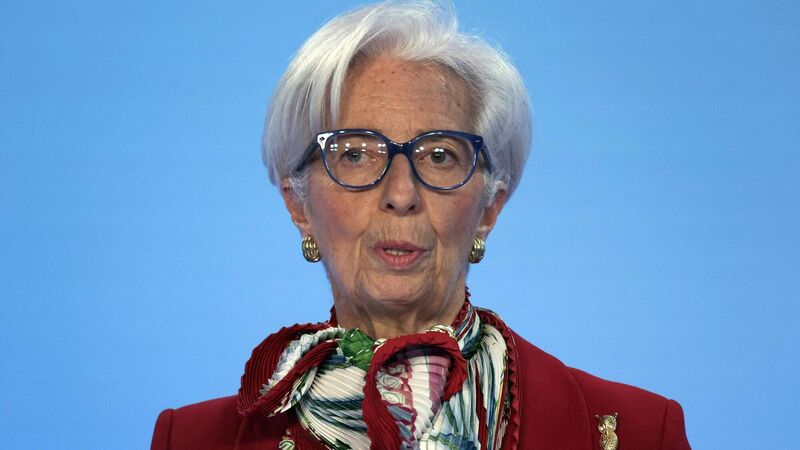Lagarde: Interest rates to stay elevated for as long as needed

European Central Bank president Christine Lagarde said borrowing costs will remain high to tame consumer prices.
Shares fell and the interest rates for European governments rose as markets focused on concerns that the European Central Bank will take a long time in cutting interest rates.
The pan-European Stoxx-600 index of Europe's largest companies slid 0.6%, down for a third consecutive session, with travel and leisure firms and household products company shares falling sharply. In Dublin, Ryanair shares fell by almost 2% in the session.











